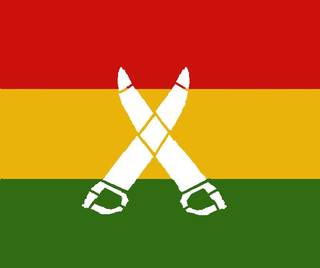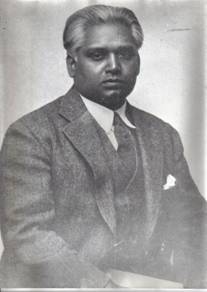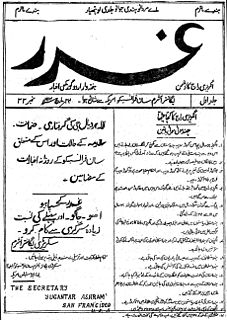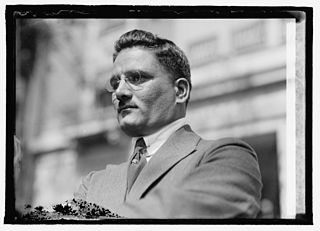International South Asia Forum (INSAF) is a Canada-based group that seeks to promote secularism, democracy, human rights and social justice. Their focus is in South Asian countries such as India, Pakistan, Bangladesh and Sri-Lanka.
INSAF was founded in 1999 at a conference held in Montreal, Canada, on September 4 and 5.
International South Asia Forum 254 Kensington Ave, Westmount, QC, Canada H3Z 2G6
Two major publications
The INSAF bulletin is edited by Daya Varma and Vinod Mubayi.

The United Nations Economic Commission for Europe is one of the five regional commissions under the jurisdiction of the United Nations Economic and Social Council. It was established in order to promote economic cooperation and integrations among its member States.

The Laos national football team is the men's national football team that represents the Lao People's Democratic Republic.

The Ghadar Movement was an early 20th century, international political movement founded by expatriate Indians to overthrow British rule in India. The early membership was composed mostly of Punjabi Indians who lived and worked on the West Coast of the United States and Canada, but the movement later spread to India and Indian diasporic communities around the world. The official founding has been dated to a meeting on 15 July 1913 in Astoria, Oregon, with the Ghadar headquarters and Hindustan Ghadar newspaper based in San Francisco, California.

The Komagata Maru incident involved the Japanese steamship Komagata Maru, on which a group of people from British India attempted to immigrate to Canada in April 1914, but most were denied entry and forced to return to Calcutta. There, the Indian Imperial Police attempted to arrest the group leaders. A riot ensued, and they were fired upon by the police, resulting in the deaths of 20 people.
Accreditation is the independent, third-party evaluation of a conformity assessment body against recognised standards, conveying formal demonstration of its impartiality and competence to carry out specific conformity assessment tasks.

Taraknath Das was an Indian revolutionary and internationalist scholar. He was a pioneering immigrant in the west coast of North America and discussed his plans with Tolstoy, while organising the Asian Indian immigrants in favour of the Indian independence movement. He was a professor of political science at Columbia University and a visiting faculty in several other universities.
Kartar Singh Sarabha was an Indian revolutionary. He was 15-years-old when he became a member of Ghadar Party; he then became a leading luminary member and started fighting for the Indian independence movement. He was one of the most active members of the movement. In November 1915 at Lahore, he was executed for his role in the movement when he was 19 years old.
The Hindu–German Conspiracy(Note on the name) was a series of attempts between 1914 and 1917 by Indian nationalist groups to create a Pan-Indian rebellion against the British Raj during World War I. This rebellion was formulated between the Indian revolutionary underground and exiled or self-exiled nationalists in the United States. It also involved the Ghadar Party, and in Germany the Indian independence committee in the decade preceding the Great War. The conspiracy began at the start of the war, with extensive support from the German Foreign Office, the German consulate in San Francisco, and some support from Ottoman Turkey and the Irish republican movement. The most prominent plan attempted to foment unrest and trigger a Pan-Indian mutiny in the British Indian Army from Punjab to Singapore. It was to be executed in February 1915, and overthrow British rule in the Indian subcontinent. The February mutiny was ultimately thwarted when British intelligence infiltrated the Ghadarite movement and arrested key figures. Mutinies in smaller units and garrisons within India were also crushed.
The Ghadar Mutiny (Hindustani: ग़दर राज्य-क्रान्ति, غدر بغاوت Ġadar Rājya-krānti, Ġadar Baġāvat), also known as the Ghadar Conspiracy, was a plan to initiate a pan-Indian mutiny in the British Indian Army in February 1915 to end the British Raj in India. The plot originated at the onset of World War I, between the Ghadar Party in the United States, the Berlin Committee in Germany, the Indian revolutionary underground in British India and the German Foreign Office through the consulate in San Francisco. The incident derives its name from the North American Ghadar Party, whose members of the Punjabi community in Canada and the United States were among the most prominent participants in the plan. It was the most prominent amongst a number of plans of the much larger Hindu–German Mutiny, formulated between 1914 and 1917 to initiate a Pan-Indian rebellion against the British Raj during World War I. The mutiny was planned to start in the key state of Punjab, followed by mutinies in Bengal and rest of India. Indian units as far as Singapore were planned to participate in the rebellion. The plans were thwarted through a coordinated intelligence and police response. British intelligence infiltrated the Ghadarite movement in Canada and in India, and last-minute intelligence from a spy helped crush the planned uprising in Punjab before it started. Key figures were arrested, and mutinies in smaller units and garrisons within India were also crushed.

Baba Sohan Singh Bhakna was an Indian revolutionary, the founding president of the Ghadar Party, and a leading member of the party involved in the Ghadar Conspiracy of 1915. Tried at the Lahore Conspiracy trial, Sohan Singh served sixteen years of a life sentence for his part in the conspiracy before he was released in 1930. He later worked closely with the Indian labour movement, devoting considerable time to the Kisan Sabha and the Communist Party of India.

The Hindustan Ghadar was a weekly publication that was the party organ of the Ghadar Party. It was published under the auspices of the Yugantar Ashram in San Francisco. Its purpose was to further the militant nationalist faction of the Indian independence movement, especially amongst Indian sepoys of the British Indian Army.

Ram Chandra Bharadwaj, also known as Pandit Ram Chandra was the president of the Ghadar Party between 1914 and 1917. As a member of the Ghadar Party, Ram Chandra was also one of the founding editors of the Hindustan Ghadar and a key leader of the party in its role in the Indo-German Conspiracy. He assumed the role of the president of the party following Lala Har Dayal's departure for Switzerland in 1914 and, along with Bhagwan Singh and Maulvi Mohammed Barkatullah, was key in rallying the support of the South Asian community in the Pacific Coast in the wake of the Komagata Maru incident for the planned February mutiny. Ram Chandra was assassinated on 24 April 1918 on the last day of the Hindu–German Conspiracy Trial by Ram Singh, a fellow defendant who believed that Ram Chandra was a British agent.

Bhai Bhagwan Singh Gyanee was an Indian Nationalist and a leading luminary of the Ghadar Party. Elected the party president in 1914, he was extensively involved in the Ghadar Conspiracy of 1915 during World War I and in the aftermath of its failure fled to Japan. He is also known for his nationalist poems that were published in the Hindustan Ghadar and later in the compilation Ghadar di Gunj.

Pandurang Sadashiv Khankhoje was an Indian revolutionary, scholar, agricultural scientist and Statesman who was among the founding fathers of the Ghadar Party.
The Law and Society Trust is a non-profit making body in Sri Lanka that was set up in Colombo in 1982 and its headquartered at No. 3 Kynsey Terrace, Colombo 00800, Sri Lanka. The activities of the trust concerns with improving public awareness on civil and political rights; social, economic and cultural rights and equal access to justice. The Trust is a member organization of the Asian Forum for Human Rights and Development (FORUM-ASIA).
The South Centre is an intergovernmental organisation of developing nations, established by an intergovernmental Agreement (Treaty), which came into force on 31 July 1995, with its headquarters in Geneva, Switzerland. It functions as an independent policy think tank, whilst also holding Observer Status at the United Nations and other development agencies.
The Gymnasiade, or World Gymnasiade, is an international multi-sport event which is organised by the International School Sport Federation (ISF). It is the largest event among many other sport events held by the ISF.
The International Union of Psychological Science, abbreviated IUPsyS or the Union, is the global umbrella organization for psychology.
Reeta Chowdhari Tremblay is a Canadian political scientist and former senior academic administrator. She is an internationally recognized expert on Kashmir and India-Pakistan.
BioScope: South Asian Screen Studies is a blind peer-reviewed journal that provides a forum for discuss the historical, regional, and virtual spaces of screen cultures, including globalized and multi-sited conditions of production and circulation.